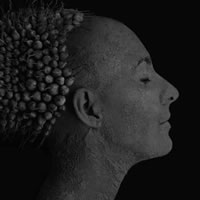Starts the fifth round of Aboca International Lectures on Nature and Human Ecology
We have reached the fifth year of the International Lectures, and it's time to draw some conclusions about this project and the objectives we set out to reach. In my introduction to the first year's brochure, I wrote: "
Meetings aiming to create an opportunity for deep reflection, with the contribution of scientists, philosophers and artists who all share the interest in understanding the system of relations connecting Man and Nature. Because [...] there is no evolution without nature [...], evolution is a complex factor summing up in the relationship between man and nature all the great questions that humanity has always asked, since the dawn of time".
What results could we have reached having posed such weighty questions?

We certainly didn't seek results, but simply wanted to confront such questions, and lecture after lecture we understood that the principle of ecology that binds man and nature together in a single whole is not simply an ethical principle, but rather a condition of our own actions, a principle of efficacy, and the basis for us to rethink our strategies, dramatically reviewing the very modes that are at the root of our understanding.
So we come to this last year of the first cycle of International Lectures with the participation of internationally renowned lecturers and discussants who will lead us once again to discover the value of context, and of this new logos that emerges as a deep and real result of our quest.
We will begin with Randolph Nesse, who will bring us to the frontier of medical thought. Taking a distance from the statistical certitudes of evidence-based medicine, he no longer approaches diseases and illnesses as events but as processes, attempting to understand the human organism as a whole and as a part of a
specific context.
While it will be evident to all how far this approach is from the pharmacological reductionism that has reigned for the last hundred years, it will be all the more interesting to see how this evolutionary perspective widens our view of individual and collective health, providing the foundation for a new concept of well-being as sustainable health.
The protagonist of the second lecture will be Lynn Margulis, whose explanation of the impact of symbiogenesis on evolution opens to a radical vision that shatters our idea of the human organism – no longer an individual identity and substance but a symbiote, an immortal process-based assemblage. Eternal life comes here in a manner we perhaps won't like, but to which we cannot escape, like death.
The year will close with Steven and Hilary Rose, who will speak about the Promethean promises of science. Their perspective is neither a self-serving criticism nor the proposal of alternative and a-scientific paradigms, but the result of the considerations that one of the purposes of science is to question its own answers and that there is no single objective reality.

At the end of these five years, we are right back where we began: "
after the loss of matter, and with the new logic of qualitative and probabilistic science, the value of the 'natural' as an evolved system emerges in all its ineluctability". Man is part of this system and therefore is no longer alone in a foreign world, in a constant quest for a metaphysical absolute; rather, as a conscious symbiote, he can once again be deeply at ease in the world in which he belongs, discovering in immanence a different dimension of the meaning which conceals the foundation of this new and profound ecology.
Massimo Mercati